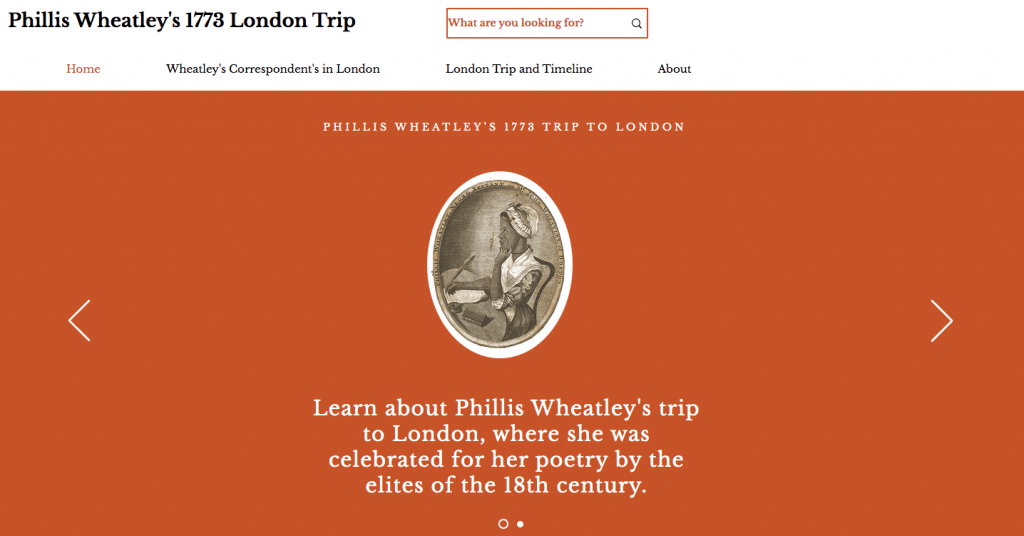In this new series – ‘Becoming a Public Historian’ – Dr Jessica Moody, unit co-ordinator of the third year Practice-Based Dissertation option, interviews students about their projects and experiences of this unit.
The Practice-Based Dissertation was first introduced at Bristol in 2020-21 and enables students to produce a practical, public-facing ‘public history’ output as well as a 5000 word Critical Reflective Report.
In this interview, Jessica talks to Haley Jensen about her project.
JM: Let’s start from the beginning, what made you choose the Practice-Based Dissertation over the standard Dissertation?
HJ: Initially I chose the practice-based dissertation because I thought it would teach me practical skills for working after graduation, as I didn’t see myself going on to pursue a PHD in history. Also, your project could actually influence and teach people outside of academia something about history which kind of motivated me to take this unit!
JM: Could you tell us about your public history project?
HJ: My project is a website on Phillis Wheatley and the high society people she met when she travelled to London in 1773. Wheatley was stolen from West Africa as a child, sent on the Middle Passage, enslaved and sold to a rich family in Boston as young as seven or eight years old. Despite the horrific trauma and racism she suffered, she became an internationally recognised poet. My project aims to celebrate her success by showing her famous interactions with well-known figures like Benjamin Franklin to highlight how successful she was.
JM: Why did you want to undertake this project?
HJ: I am from America and moved to the UK for university, and as a nerdy history obsessed kid, I loved learning about revolutionary American history. I would read kids’ books, watch tv shows, and force my friends to play a game of tag where one side was ‘redcoats’ and the other side being ‘patriots’. So as a kid I knew a lot about the big men from the period like George Washington, Thomas Jefferson, Benjamin Franklin, Benedict Arnold, and even military generals. Looking back, it’s upsetting that I couldn’t name any women or enslaved people from this period. The public history of the 18th century is totally biased to not include the stories of women and people of colour. I read a post online about Phillis Wheatley and became passionate about learning about her. She was so successful and it is really upsetting she’s not well-remembered or honoured in public history. Initially my project was aimed to educate American school kids about Wheatley, but as the year went on this changed to be made for general 18th century history fans, as her story is so important to tell.
JM: What did you enjoy most about the Practice-Based Dissertation?
HJ: I really had a lot of fun with this project that I don’t think I would have had with a traditional dissertation. There is so much freedom in how each project is undertaken. For example, my website includes portraits of the people she corresponded with. It was kind of a fun challenge finding these pictures, it felt like a little art history in my project so very different from normal essays. I then included letters that mention Wheatley or were written by her. These were kind of hard to find, but cool because I got to engage with history I don’t normally do in my degree. I found letters from Voltaire and Benjamin Franklin, who I loved learning about in high school but didn’t learn about in my degree, so it’s cool choosing different aspects of history in your blog. I loved being able to have a creative outlet designing my blog, like picking different colours, formatting stuff, and being artistic, which I would not have with the traditional dissertation.
And as a side note, I emailed my final project to my middle school history teacher, and she said she would now teach her class about Phillis Wheatley which is so awesome! This project is cool because you can reach a bigger group of people outside of university!
JM: That IS cool! What did you find challenging?
HJ: Time management was kind of difficult with this project, I loved working on my website. So would spend a lot of time on that as opposed to writing my 5,000-word essay. The website always felt like there could be additional information added, new people added under who she met, even new pages on the site added, and formatting changes to be made. It was a fun creative outlet making the website, but I had to remind myself to focus on the essay as I was spending too much time on the website!
JM: Did you come across any problems that you needed to address or solve?
HJ: Yes! I came across issues within a lot of existing public history on the internet about Wheatley. So basically, when Wheatley was a young teenage girl enslaved, she wrote a poem called ‘On Being Brought from Africa to America’, in which she expresses gratitude towards her enslavement as she became Christian from it. Therefore, a lot of online blogs on Wheatley reinstate this and imply she was a supporter of slavery. This is totally untrue; the blogs completely ignore her other writings like a letter to Lord Dartmouth, where she expresses the pain her family felt when she was kidnapped and her love of liberty. My website tries to amend this historical inaccuracy by showing her connections to abolitionists and the letter to Lord Dartmouth.
JM: What do you feel you’ve learnt from this process?
HJ: I learned a lot about myself! I really enjoyed this project and felt passionate about public history and its inspired me to pursue a masters next year in a degree related to public history! I would not have known I wanted my life to go in the direction of public history without the project!
JM: What do you think public history needs more of? Do you have any reflections or advice from your project for public historians?
HJ: Personally, I would advocate for more projects on Phillis Wheatley, but I am biased ha-ha. I am no expert, but there seems to be a shift on right now within public history to being more inclusive of different people’s history and more respectful of different backgrounds. Like overall a shift away from the ‘big men’ in history I mentioned at the start of the interview like Washington. All of this makes this unit even more exciting, like within my group we were all covering diverse topics. From really local history about the Colston Statue, Windrush’s legacy, to global history with post war black American history, and the US’s involvement in Chile.
JM: What advice do you have for students just starting the Practice-Based Dissertation?
HJ: I’m sure next year will be different with in person learning, but we had Zoom chats with all group members who were doing different topics. We created a group chat on Facebook to message for advice when things come up. That was super useful so I might recommend that!
JM: How can people find out more about your project?
HJ: Here is the link to the website!
JM: Is there anything else you’d like to add?
HJ: No that’s all! Thank you so much for interviewing me!


